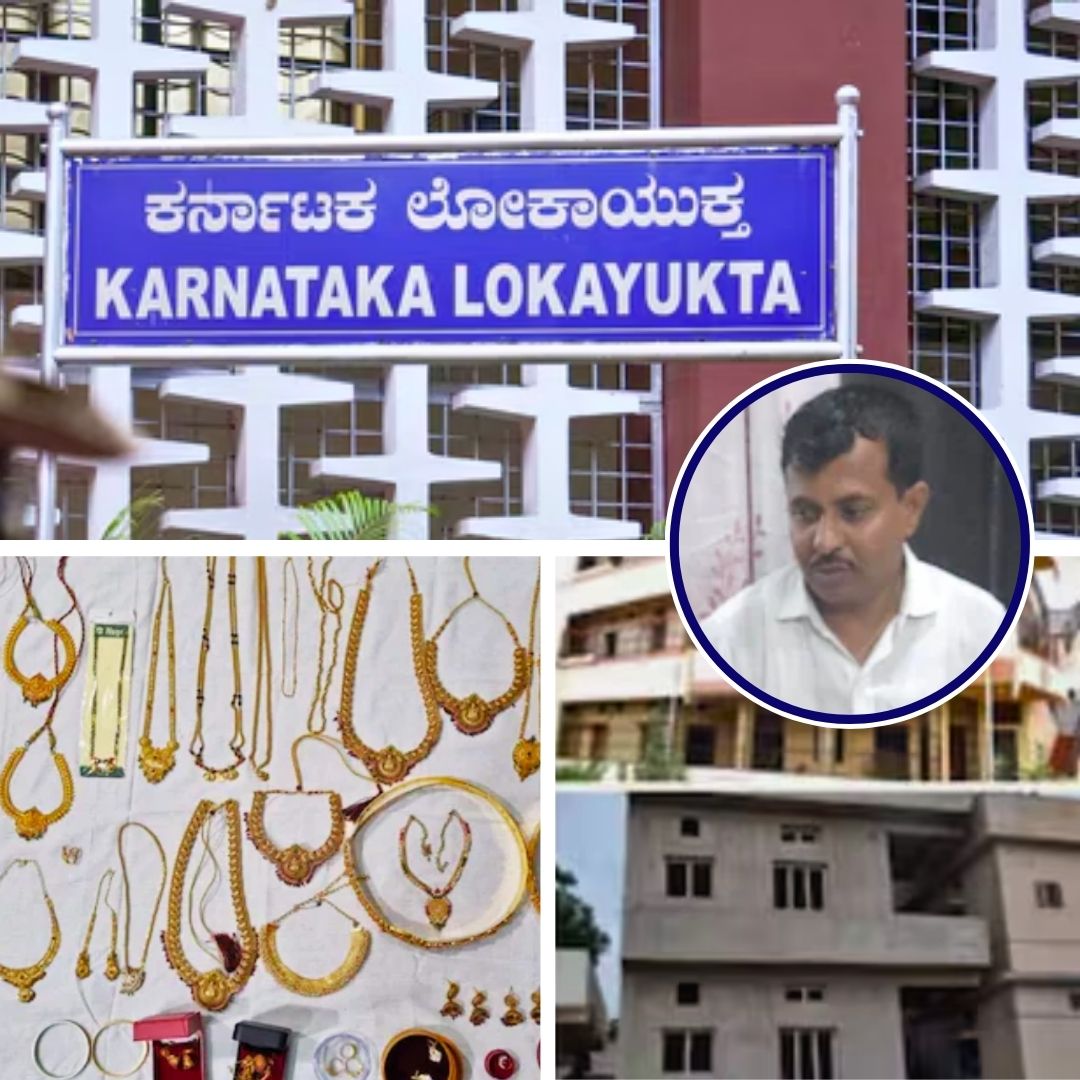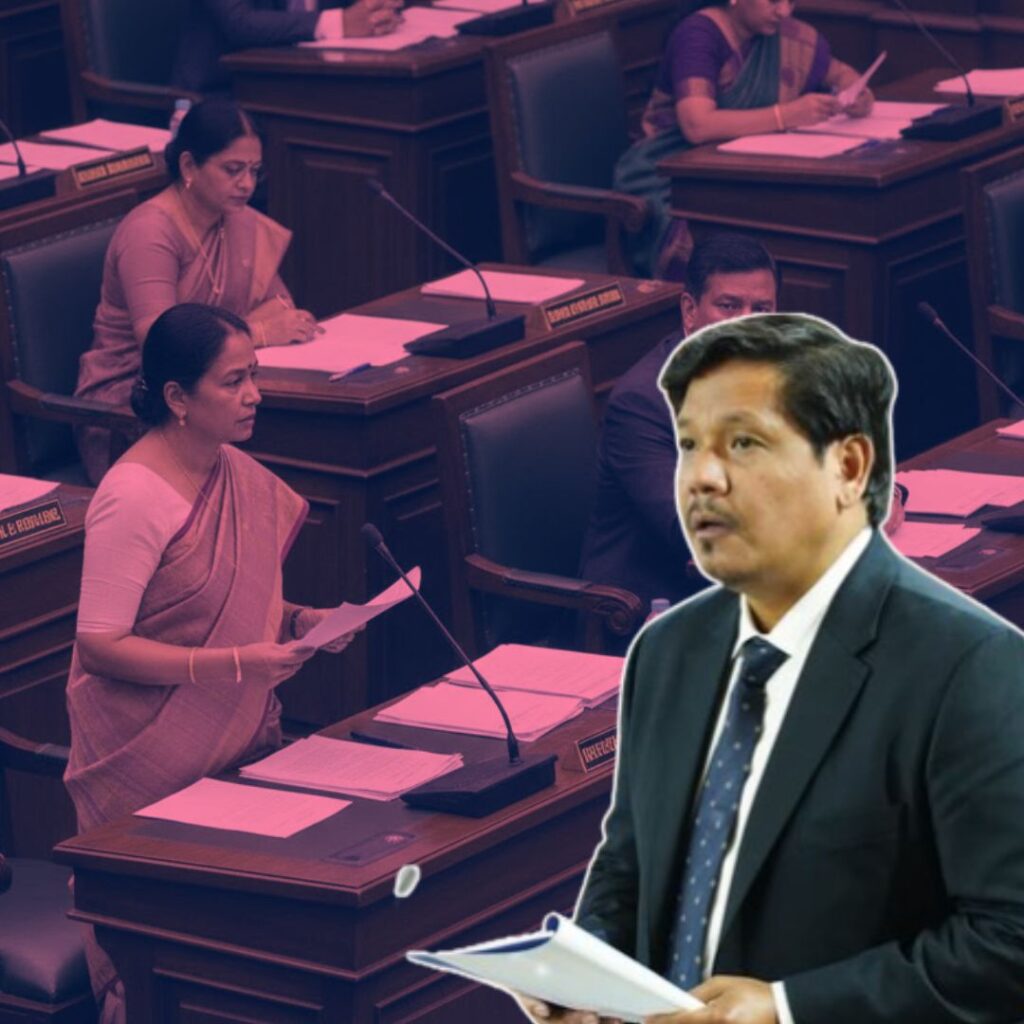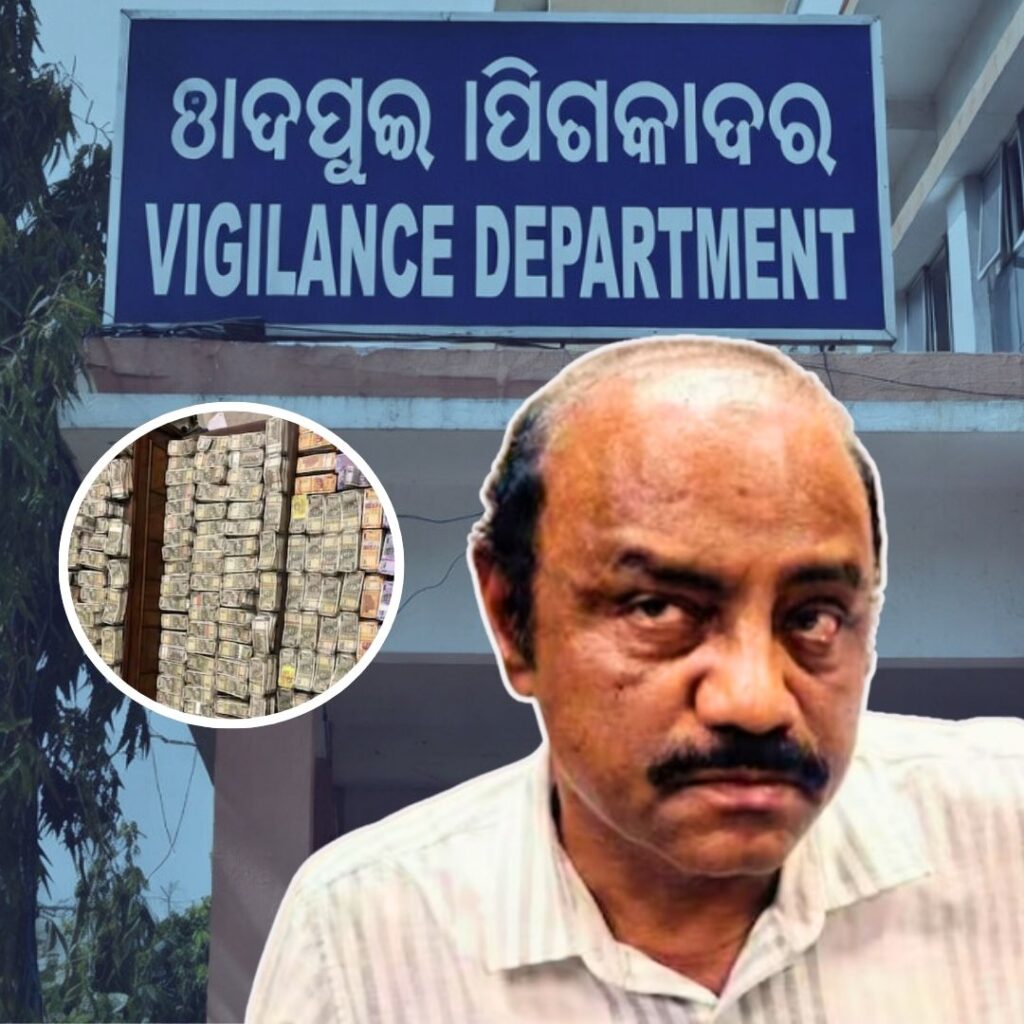Kalakappa Nidagundi, a former outsourced clerk at the Karnataka Rural Infrastructure Development Limited (KRIDL) in Koppal, earning a meagre monthly salary of ₹15,000, has come under scrutiny for owning assets valued at over ₹30 crore—comprising 24 residential houses, six plots, and more than 40 acres of agricultural land. These properties are registered not only in his own name but also those of his wife and brother.
The IKayukta’s inquiry was triggered by allegations involving fabricated bills worth ₹72 crore related to 96 infrastructure projects (covering sewerage, roads, and drinking water) that were never completed as intended. Following a raid, authorities confiscated gold and silver jewellery, vehicles and continue to widen their investigation, promising stringent action.
Massive Wealth Despite a Modest Salary: Unraveling the Scale of Deception
The Lokayukta raid, conducted early morning at Nidagundi’s residence in Pragati Nagar, revealed evidence of long-term accumulation of ill-gotten wealth. Officials discovered 24 houses and six land plots spanning tens of acres acquired despite his modest official salary, suggesting the money came from corrupt activities rather than legitimate income.
Over one kilogram of gold (around 350 grams) and 1.5 kilograms of silver jewellery were seized, in addition to two cars and two two-wheelers, highlighting the extravagant lifestyle financed through illicit means.
Nidagundi’s alleged co-conspirator, Zaranappa M. Chincholikar, a former KRIDL engineer, reportedly played a key role in creating fake bills and documents to siphon funds from government projects spanning multiple taluks such as Kanakagiri, Gangavathi, Yelburga, and Koppal over several years (2019-2025). Complaints lodged by KRIDL executive engineers helped expose the scam, pointing to whistleblower courage playing a critical role in anti-corruption efforts.
Contextual Background: Karnataka’s Fight Against Corruption and Governance Challenges
This case sheds light on endemic issues within public infrastructure agencies where monitoring and financial oversight mechanisms fail to detect or prevent abuse of power and resources. The Karnataka Lokayukta has intensified its crackdown on disproportionate assets involving government officials across different departments, including engineers and tax assessors suspected of corruption.
This constitutes a significant effort to clean up public administration and offers a warning that corrupt practices will be exposed and punished. The systemic loopholes in project implementation and fund disbursement mechanisms signal a pressing need for more transparency, better audits, and stronger accountability measures to protect public funds and serve citizens’ interests honestly.
The Logical Indian’s Perspective
The startling disparity between Nidagundi’s modest salary and the vast wealth he amassed accentuates the persistent challenges corruption poses in public service. While the Lokayukta’s active intervention is commendable and embodies the spirit of justice and transparency, it is only a part of the solution.
Deep-rooted institutional reforms that foster honesty, openness, and ethical behaviour are essential to preventing exploitation of public resources.












